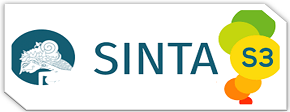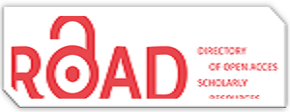Perilaku Masyarakat Dalam Pengelolaan Keuangan Melalui Bank Keliling : Bagaimana Peran Pemerintah
DOI:
https://doi.org/10.30587/jurnalmanajerial.v12i02.9776Keywords:
Mobile Bank, Government Role, Urban Village, BUMDesAbstract
Background – The demand for credit services in Parbarakan Village has increased significantly every year. This increase is generally driven by various factors, especially the socio-economic conditions of the community, such as insufficient income to meet the needs of life, both basic needs and urgent needs. This condition encourages many housewives to apply for loans as an effort to cover the lack of funds. The majority of people who work as farmers with unstable incomes also strengthen the need for loans. This situation is then exploited by certain parties from outside by providing massive loan offers, thus encouraging an increase in demand.
Objective – To find out the role of the Perbarakan village government in resolving the problem of mobile banking services among the community.
Design/ methodology/ approach – This study uses a qualitative phenomenological approach. Where primary data is obtained by observing and interviewing mobile bank officers and customers using mobile bank services. Secondary data is obtained from websites, literature studies that support research and various other sources. Data collection techniques in this study were carried out in several ways, namely by field observation, data obtained through this observation are the main data collected directly in the field. Interviews to obtain data directly, researchers conducted interviews with informants who were given a series of questions.
Findings – the role of the government in solving the problem of mobile banks in Perbarakan village is that the village government creates its own bank through BUMDES with the hope that the people of Perbarakan village can be helped with capital loans offered by the government with very small interest so as not to burden the people of Perbarakan village. Creating training for young people and housewives, the purpose of holding training by BUMDes is also part of the process of absorbing community aspirations that may have rarely been touched by the village. One of them is sewing course training. In Perbarakan village, the majority of housewives have sewing skills to be able to maximize this, BUMDes must create a convection company where the company can sell sewing works from housewives in Perbarakan village. As the results of the interview conducted with the head of Perbarakan village who stated that in our village there are always sewing courses for mothers, the hope is that sewing courses in our village can be additional income for mothers in our village and hopefully it can reduce the community’s dependence on this mobile bank.
Implications – This study reveals the reasons why people choose to use mobile banks, then with this study can find the factors that cause people to borrow from mobile banks and what they are used for and this study reveals what risks people face when choosing to use the services of mobile banks. And this study also explains how the role of the village government is in solving the problems of people who use mobile bank services in Perbarakan village.
Research Limitations – This research focuses on the impact of the existence of mobile banks in Perbarakan village and how the government’s efforts are to reduce people’s sense of dependence on using mobile banking services.
References
Anggeri, N. K. (2019). Penyelesaian Kredit Bermasalah Pada PT. Bank Pengkreditan Rakyat Daerah Lamongan Tahun 2017. Jurnal Manajerial http://dx.doi.org/10.30587/jurnalmanajerial.v6i01.848
Arfani, Z., Hermawan Adinugraha, H., Abdurrahman, U. K. H., & Pekalongan, W. (2024). The Impact Of Using Bank Keliling (Mobile Bank) Among The People Of Kalimojosari Village.
Arifani, M. A., Agusianti, L., & Bukhori) &. (2023). Berperankah Perilaku Sosial Ibu Rumah Tangga Pemakai Jasa Bank Keliling Di Desa Cikeris Kecamatan Bojong Kabupaten Purwakarta. In Jurnal Ilmu Sosial (Vol. 21, Issue 2).http://jurnaldialektika.com/
Gustiani, H. (2023). Bank Keliling Bank Emok di Kalangan masyarakat Bungursari Kota Tasikmalaya. ORGANIZE: Journal of Economics, Management and Finance, 2(1), 11–17. https://doi.org/10.58355/organize.v2i1.10
Handayani Dewi, D., Dimyati Sudja, M., & Riandi, N. (2022). Analisis Faktor Yang Mempengaruhi Masyarakat Dalam Menggunakan Jasa Bank Emok Di Desa Cilember Kecamatan Cisarua. Journal of Public Power, 6(2), 113–121. https://doi.org/10.32492/jpp.v6i1.6106
Hikmawati, N., Yudha Pratama, V., Arisandi, D., & Abdurrahman Wahid Pekalongan, U. K. (2023). Konsep Bank Keliling Syariah Dalam Memenuhi Kebutuhan Di Desa Krandon Kecamatan Kesesi (Vol. 2, Issue 1).
Iskandar, J., Tri Sakti, F., Azzahra, N., & Nabila, N. (2021). Strategi Pengembangan Badan Usaha Milik Desa (Bumdes) Dalam Meningkatkan Kesejahteraan Masyarakat Desa. In Jurnal DIALEKTIKA : Jurnal Ilmu Sosial (Vol. 19, Issue 2). https://doi.org/http://jurnaldialektika.com
Listiawati, R., Redyanita, H., Marbun, J., & Mahatmyo, A. (2020). Pemberdayaan Masyarakat Kampung Pulo Geulis Bogor Melalui Pembinaan dan Pengembangan Unit Usaha Simpan Pinjam dan UMKM di Masa Pandemi Covid-19. Jurnal Pemberdayaan Komunitas MH Thamrin, 2(2), 83–91. https://doi.org/10.37012/jpkmht.v2i2.372
Monica, R. (2023). Faktor Yang Mempengaruhi Pemilihan Utang Pada Bank Keliling dan Dampaknya Terhadap Keberlangsungan Usaha (Studi Kasus Pedagang Pasar Alang-Alang Lebar Kota Palembang). Journal of UMKC National Seminar on Accounting Proceeding, 2(1), 439–448.
Mukhtaliana, F. (2020a). Analisis Permintaan Kredit Pada Bank Keliling Dan Pengaruhnya Terhadap Kesejahteraan Masyarakat Di Kabupaten Sidoarjo.
Munfarid, A. (2024). Analisis Dampak Praktik Pinjaman Bank Keliling Terhadap Kondisi Sosial Ekonomi Masyarakat Desa Sokawera Kecamatan Cilongok.
Neng Santi Anggraeni, & Ageng Saepudin Kanda S. (2024). Dampak Maraknya Penggunaan Bank Emok Pada Kalangan Ibu Rumah Tangga Di Kampung Leuweung Gede Kota Cimahi. Jurnal Manajemen Riset Inovasi, 2(2), 211–222. https://doi.org/10.55606/mri.v2i2.2528
Aprilia Indah Saputri Rambe, Tri Inda Fadhila Rahma, & Wahyu Syarvina. (2024). Pengaruh Harga, Promosi, Suasana Toko dan Kualitas Pelayanan Terhadap Keputusan Pembelian di Toko Kue Dapur Daya Tanjungbalai. Jurnal Manajemen Riset Inovasi, 2(2), 145–163. https://doi.org/10.55606/mri.v2i2.2498
Fitri Sagita, I. (2022). Analisis Persepsi Masyarakat Desa Laut Dendang Terhadap Sistem Tanggung Renteng PNM Mekaar Dalam Pandangan Ekonomi Islam. Jurnal Ilmiah Ekonomi Islam, 8(02), 1937–1946.
Inayah, N., & Soemitra, A. (2022). Fiqih Muamalah Uang dan Lembaga Keuangan: Studi Literatur. Jurnal Ilmiah Ekonomi Islam, 8(3), 2966. https://doi.org/10.29040/jiei.v8i3.6777
Mentari, E. C., & Qarni, W. (2023). Peran Pemerintah Melalui Program Pelatihan dalam Mengurangi Jumlah Pengangguran Menurut Perspektif Ekonomi Islam (Studi Kasus Dinas Ketenagakerjaan Kota Medan). Jurnal Ekonomi Dan Perbankan Syariah, 8(1), 505–520.
Pasaribu, S. N., Nasution, Y. S. J., & Harmain, H. (2023). Pengelolaan Keuangan Desa Dan Sistem Akuntansi Keuangan Desa Dalam Rangka Meningkatan Kinerja Pemerintah Desa Sibito. Jurnal Ilmiah Manajemen, Ekonomi, & Akuntansi (MEA), 7(3), 95–111. https://doi.org/10.31955/mea.v7i3.3307
Safira, R., Sugianto, S., & Harahap, R. D. (2023). Pengaruh Kepercayaan, Kemudahan, dan Manfaat Digital Payment Sebagai Alat Pembayaran Terhadap Perilaku Konsumtif Individu Dengan Digital Savvy Sebagai Variabel Moderating. Al-Kharaj : Jurnal Ekonomi, Keuangan & Bisnis Syariah, 5(6), 2859–2878. https://doi.org/10.47467/alkharaj.v5i6.3694
Siti Nurhalita, & Imsar. (2022). Peran Pemerintah Daerah Dalam Pemberdayaan Usaha Mikro Kecil Menengah (Umkm) Di Kabupaten Langkat. Maro: Jurnal Ekonomi Syariah Dan Bisnis, 5(1), 84–90. https://doi.org/10.31949/maro.v5i1.2282
Rosanti, R., & Sunarti, E. (2023). Economic Pressure and Debt Decision-Making of the Customer’s Family Bank Keliling/Bank Emok. In Journal of Family Sciences E (Vol. 08, Issue 01).
Salsa maulidhita Hapein, N., Pramudya Sari, S., Saepul Mustakim, U., & Syekh Manshur, S. (2025). Dampak Pinjaman Bank Keliling Terhadap Pemenuhan Kebutuhan dan Gaya Hidup Konsumtif Masyarakat (Study kasus pada Masyarakat di Kp. Bengkok Ds. Karyasari Kec. Cikedal). JoSES: Journal of Sharia Economics Scholar, 2(4), 75–77. https://doi.org/10.5281/zenodo.14670342
Santosa, O. (2023). Analisis Dampak Bank Keliling Terhadap Tingkat Kesejahteraan Masyarakat Ditinjau Dari Ekonomi Islam. Central Publisher, 8, 878–887. http://centralpublisher.co.id
Septi Larassati, W. (2024). Peran Bank Keliling Terhadap Kesejahteraan Masyarakat (Studi Kasus Masyarakat Pengguna Jasa Bank Keliling di Baruamba.
Subehi, F., Luthfi, A., Mustofa, Moh. S., & Gunawan, G. (2020). Peran Badan Usaha Milik Desa (BUMDes) dalam Peningkatan Kesejahteraan Masyarakat Di Desa Ponggok, Kabupaten Klaten. Umbara, 3(1), 34. https://doi.org/10.24198/umbara.v3i1.25670
Triyo, E., Haryono, & Irwanto. (2020). Strategi Inovasi Badan Usaha Milik Desa (BUMDes) dalam Meningkatkan Potensi dan Kesejahteraan Ekonomi Masyarakat Desa (Studi pada Bumdes Mandiri, Desa Marobakung, Kecamatan Manyar, Kabupaten Gresik. Jurnal Litbang Kebijakan, 14(2), 172. https://doi.org/10.32781/cakrawala.v14i2.353
Yulyanti, E., Imam Muzakki Arifin, Januardi Putra, & Iwan Ridwan Yusup. (2024). Danpak Penggunaan Bank Emok Terhadap Dinamika Sosial dan Ekonomi Masyarakat Desa Pakuhaji, Kecamatan Cisalak, Kabupaten Subang. Proceedings UIN Sunan Gunung Djati Bandung, 5(5), 1–7.
Zunaidah, A., Askafi, E., & Daroini, A. (2021). Peran Usaha Bumdes Berbasis Pertanian Dalam Upaya Meningkatkan Kesejahteraan Masyarakat. 21.
Downloads
Published
How to Cite
Issue
Section
License
Copyright (c) 2025 Tyo Rizky Siagian, Tri Inda Fadhila Rahma, Sugianto Sugianto

This work is licensed under a Creative Commons Attribution 4.0 International License.






























 P-ISSN: 2354-8592 __ E-ISSN: 2621-5055
P-ISSN: 2354-8592 __ E-ISSN: 2621-5055 
